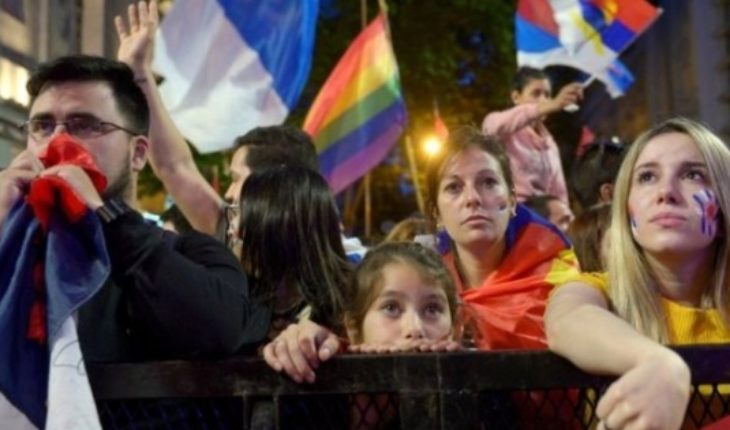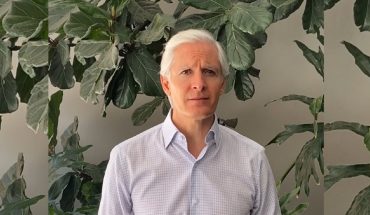Since the Broad Front came to the government of Uruguay in 2005, left-wing governments in the rest of Latin America have been through troubled times.
Presidents Tabaré Vázquez (2005-2010, 2015-2020) and José Mujica (2010-2015) witnessed the political overturns and crises in Argentina, Bolivia, Brazil, Chile, Ecuador and Venezuela.
While on Uruguayan territory, these progressive policies remained without great shocks for 15 years.
What then led the Broad Front to lose the presidential election to the center-right of Luis Lacalle Pou?
There was no capital sin, considers the Uruguayan political scientist and historian Gerardo Caetano, but it did disregard that slowly changed the opinion of the country’s leading electorate of the left.
“The front-world government had a waste after 15 years of rule,” Caetano tells BBC Mundo.
That is why he believes that the transition to the center-right of Luis Lacalle Pou should not be a source of astonishment for the rest of Latin America.
And a “really quiet” alternation, he points out: “Here everyone knows that things are said at the ballot box.”
Supporters of the National Front took to the streets to celebrate the triumph of Luis Lacalle after being recognized by Daniel Martínez.In that tonic, the governments of Vázquez and Mujica leave with “good balances” in the implementation of the liberal agenda little seen in the Region.
Among them was the legalization of marijuana, the right to decide on termination of pregnancy, equal marriage and also social policies such as improving wages and retirements, low poverty and periods of GDP growth of almost 8%.
But three factors can explain the broad front’s power output.
1. Public insecurity
One of the biggest concerns of Uruguayans today, and of which they have not seen good results in recent years, is public safety.
Unlike other Latin American countries, it has recently been that Uruguay has begun to suffer from drug trafficking violence with “account adjustments” between gangs.
This phenomenon has increased homicides by 45.8% in 2018 compared to the previous year, the government reported in March.
The debate over insecurity this year led to the vote on the “Living Without Fear” reform that ultimately did not get a popular probative majority. Added to this is the rise in cases of theft, domestic violence and gender-based violence.
“Fear responds to a criminal reality that has increased exponentially in several respects (…). For the Uruguayan it is a very strong experience, because the Uruguayan always valued the issue of security,” says Caetano.
Laura Raffo, a Uruguayan economist and entrepreneur, tells BBC Mundo that from the private economic sector insecurity has mainly hit small traders.
“There have been armed assaults in the shops, in the neighborhoods, the main ones affected by the insecurity have been the small shops and that has generated a very great discontent. Shops have been robbed over and over again.”
Tabaré Vázquez (right) ruled first from 2005 to 2010, and then from 2015 to 2020. José Mujica of 2015-2020.La Business Expectations Survey shows that in 2015 the government had a 45% disapproval, while before this year’s election, the poor score of entrepreneurs to the government reached 74%.
“Where there is higher-than-average disapproval in public safety,” followed by other indicators such as education, fiscal situation, international competitiveness, Raffo explains.
For Caetano, Vazquez’s government, while modernizing the police, failed to react to security issues.
“Yes there has been a policy that, without being a total failure, did not live up to the enormous challenges that were posed to Uruguay,” he says.
2. A “stagnant” economy
Uruguay consolidated as one of the countries with the highest increase in Gross Domestic Product (GDP) in Latin America in the governments of the Broad Front, to 7.8% in 2010.
But from then on that and other indicators began to wane until the economy was “stagnant”, which gradually began to be noticed in the pockets of Uruguayans.
The agricultural sector has been one of the most affected by the economic situation of the last two years,” says Caetano. As of 2015, there was no recession in Uruguay, but there was a slow decline in growth. This year there is a GDP forecast of 0.5%. I mean, economic times didn’t end up high on political times,” Caetano says.
Investment began to decline, there was an increase in the fiscal deficit (5% of GDP), unemployment (9.5%) and a strong dollar (from 23 pesos per dollar in 2015 to more than 37 today) that increased life and trade. Fuels in Uruguay are the most expensive in Latin America.
“There was a lower proactivity of economic policy. There were no measures to try to reduce spending,” says economist Laura Raffo.
Daniel Martinez was the candidate of the Broad Front. He proposed tax reform and support for small and medium-sized entrepreneurs.” Not reacting in time and not intervening at the time, when growth assumptions were not being met and measures were taken to reduce spending,” is a neglect of the front-budget government, he says.
“Lack of decision-making, not so much because of wrong decisions, but a paralysis in decision-making. Something that is common in election times.”
3. Do not recover from wear and tear
Public insecurity and economic stagnation are two of the most visible edges that contributed to the natural wear and tear of the Broad Front.
“After 15 years of government, there’s obviously always to wear out,” says Caetano, who also points out that the Broad Front ran into a better-articulated opposition campaign.
Luis Lacalle Pou generated a “multicolor” coalition of five opposition parties ranging from the center to the far right that pooled all the criticism towards the government.
Luis Lacalle, son of former President Luis Alberto Lacalle, will rule from 2020 to 2025.” So in the first and second rounds, the Broad Front fought against the opposition as a whole and that has finally led to a situation of defeat,” explains the political scientist.
The Broad Front candidate in these elections, Daniel Martinez, avoided acknowledging the triumph for Lacalle Pou’s minimal in primary scrutiny, given that there was a difference of just over 1%, but minimal chanceof going back according to trends.
That was badly seen by government leaders, including President Vazquez, according to Caetano. The representative himself congratulated Lacalle.
But on Thursday the inevitable was confirmed, the triumph of the National Party that will take power after three lustros of Broad Front rule.
translated from Spanish: Uruguay elections: 3 keys that explain the defeat of the leftist Broad Front after 15 years in power
November 29, 2019 |




![translated from Spanish: [VIDEO] Hungry Bear Registers Family Refrigerator and Eats Tacos translated from Spanish: [VIDEO] Hungry Bear Registers Family Refrigerator and Eats Tacos](https://ananoticias.com/wp-content/uploads/2019/08/translated-from-Spanish-VIDEO-Hungry-Bear-Registers-Family-Refrigerator-and-370x215.jpg)
